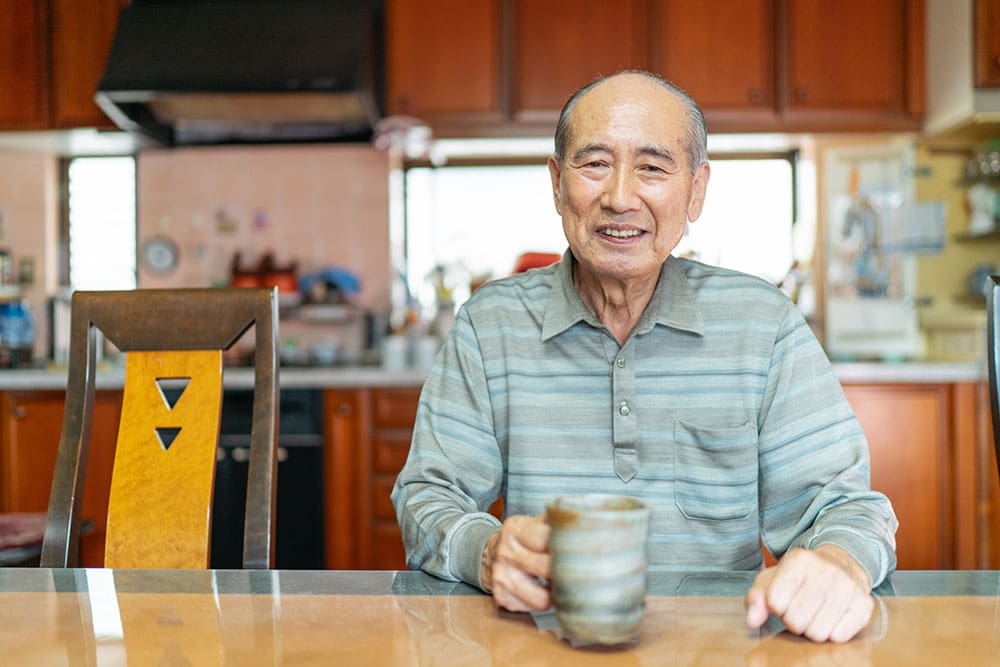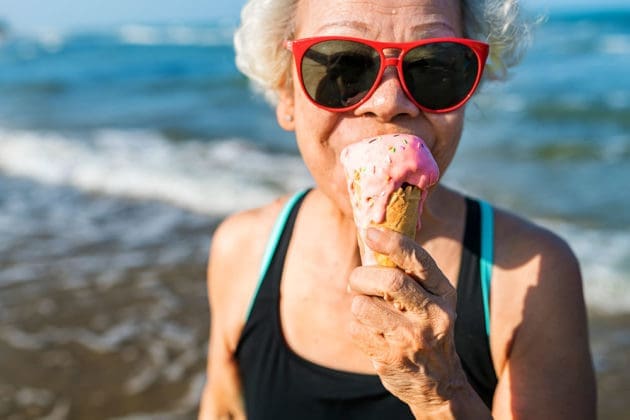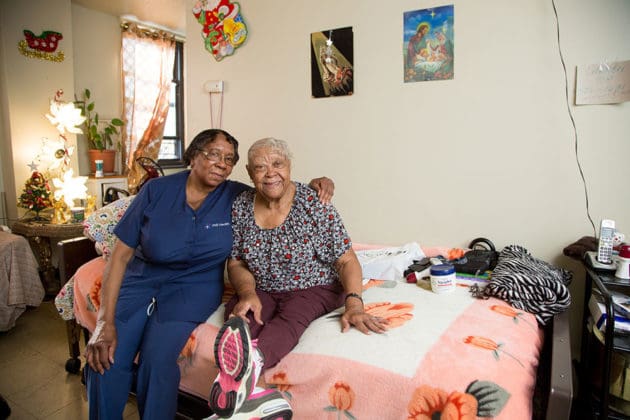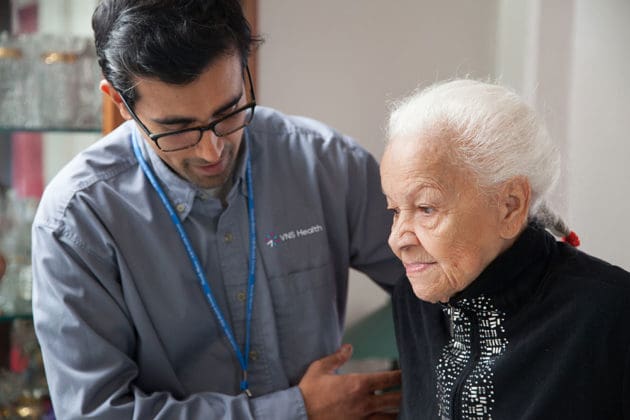
Providing care for a loved one can be fulfilling, but it can also be stressful. You might be worried about whether they can stay in their own home and for how long, or whether they need help with day-to-day tasks. You might want to focus on home safety but don’t even know where to start. This is especially true if your loved one has Alzheimer’s disease or another type of dementia.
Dementia can complicate even simple tasks, but making your loved one’s home safer can help lower your stress and theirs.
Try out these home safety tips to help your loved one with dementia move safely throughout their home.
Make your loved one’s home safer with this dementia home safety checklist.
Make the Home Easy to Navigate
One way you can start to make your loved one’s home safer is to think about how they move through it. You want to be sure they can get from one place to another easily and safely.
- Create a “wander loop.” If your loved one walks or wanders as they relive old routines or to manage emotions, make sure there’s a safe path for them.
- Keep high-traffic areas clear. Remove clutter from hallways, entrances, and other paths.
- Make the home accessible. If your loved one uses a wheelchair, walker, or power scooter, make sure that lifts or ramps (or both) are available as alternatives to stairs.
Adjust Lighting
Good lighting in your loved one’s home can go a long way toward helping them avoid experiencing a fall. Small (and often inexpensive) solutions can have a big impact.
- Install night lights. Good lighting is key to your loved one’s safety, especially if they often get up at night.
- Minimize shadows. Keep your loved one’s home well-lit to avoid dark corners, hallways, or shadows that could startle or confuse them.
Caring for a person with Alzheimer’s disease or another type of dementia is challenging. VNS Health offers specialized home care services to help your loved one feel safe in the comfort of their home.
Keep the Bathroom Safe
The bathroom can be one of the most dangerous rooms in your loved one’s home. You can make it safer with just a few adjustments.
- Use reflective tape. Mark the path to the bathroom (and the toilet) with reflective tape so your loved one can easily find their way.
- Monitor the use of personal care items. As your loved one’s dementia advances, tools such as hair dryers and razors may become dangerous. Watch for small cuts or burns on their face or neck, which can alert you that your loved one may require assistance with personal care tasks.
- Remove locks on inside doors throughout the house. If your loved one falls or has some other type of accident, you want to be able to get to them quickly — and not have to worry about how to unlock a bathroom door.
Implement Home Fire Safety Measures
Fire safety is an important part of home safety for everyone. But when your loved one has Alzheimer’s disease or some other type of dementia, additional considerations come into play.
- Monitor heating pads and electric blankets. If your loved one uses a heating pad or an electric blanket, be sure theirs shuts off automatically, or replace it with one that does.
- Double-check appliances. Appliances that generate heat (such as stoves, space heaters, toasters, and coffee makers) should be turned off when not in use. Cover electrical outlets too.
- Inspect electrical cords. Check cords for fraying or other damage. Secure them near baseboards and out of pathways to keep people from tripping. Note that hiding cords under rugs is a fire hazard.
Secure Certain More Dangerous Areas
Some rooms and items in your loved one’s home might be more dangerous than others. Limit access to these spaces and items when possible.
- Lock garages and basements. Prevent your loved one from accessing these areas unsupervised.
- Properly store hazardous items. Sharp objects, medications, toxic chemicals, and liquor should be locked in cabinets.
- Install safety locks. Locks or alarms on doors, windows, and gates prevent your loved one from wandering.
- Put away car keys. Store your loved one’s car keys in a locked container. People with dementia sometimes forget that it isn’t safe for them to drive.
Prevent Confusion
People with dementia may have trouble making sense of their surroundings. They can easily become confused or disoriented. Limiting potential triggers for these symptoms can make your loved one feel more secure.
- Reduce glare. Cover objects that might produce glare, which can be annoying or disorienting, even for people who don’t have dementia. Tip: Sit in your loved one’s chair to check make sure there’s no distracting glare and that the sun is not shining right in their eyes. Repeat this at various times throughout the day and the year. The direction of sunlight shifts from season to season and will hit surfaces at different angles.
- Cover mirrors. Consider covering or removing wall mirrors. Your loved one might be caught off guard by their own reflection in the mirror or might mistake their reflection for someone else, like an intruder.
- Get an ID bracelet. Ensure that your loved one wears an ID bracelet. This way, if they become confused and get lost, someone can contact you.
Work with Home Safety Specialists
Your loved one’s caregiving team doesn’t have to be a party of one — you. Although you can help your loved one in many ways, you can’t do it all, and that’s okay. Working with their care team and exploring all your care options can make a big difference.
- Explore home care options. Home health aides are trained to care for people with Alzheimer’s and other types of dementia. Aides are supervised by a home care nurse.
- Get a clinical assessment. One type of clinical assessment involves a visit from a home care specialist who will go through your loved one’s home to identify places that can be made safer. This is a great way to start if you’re not sure how to make changes on your own — or if you’re not sure your loved one should still be living independently.
- Talk to your loved one’s medical team. Monitor your loved one’s condition and get input from their nurse or doctor about how to make their home safe.
Understanding where to begin can be daunting. Thankfully, these caregiver tips can drastically improve your loved one’s care and your own well-being.


